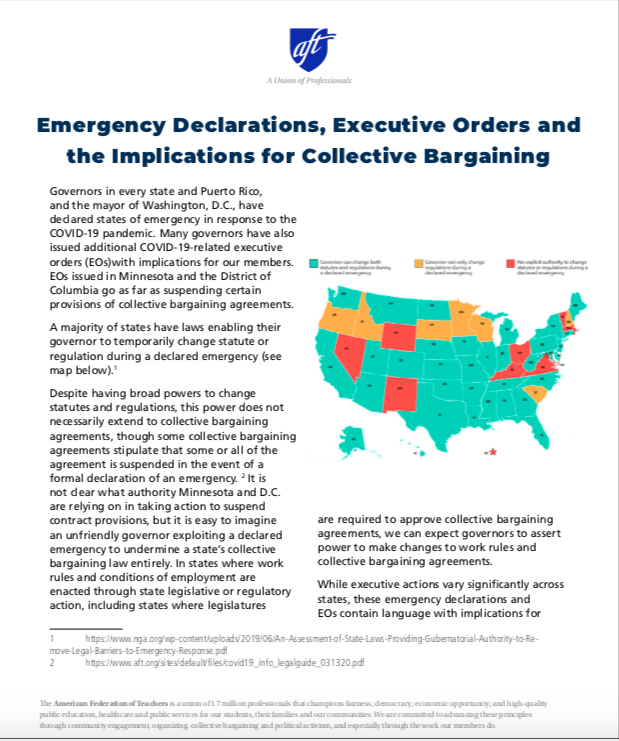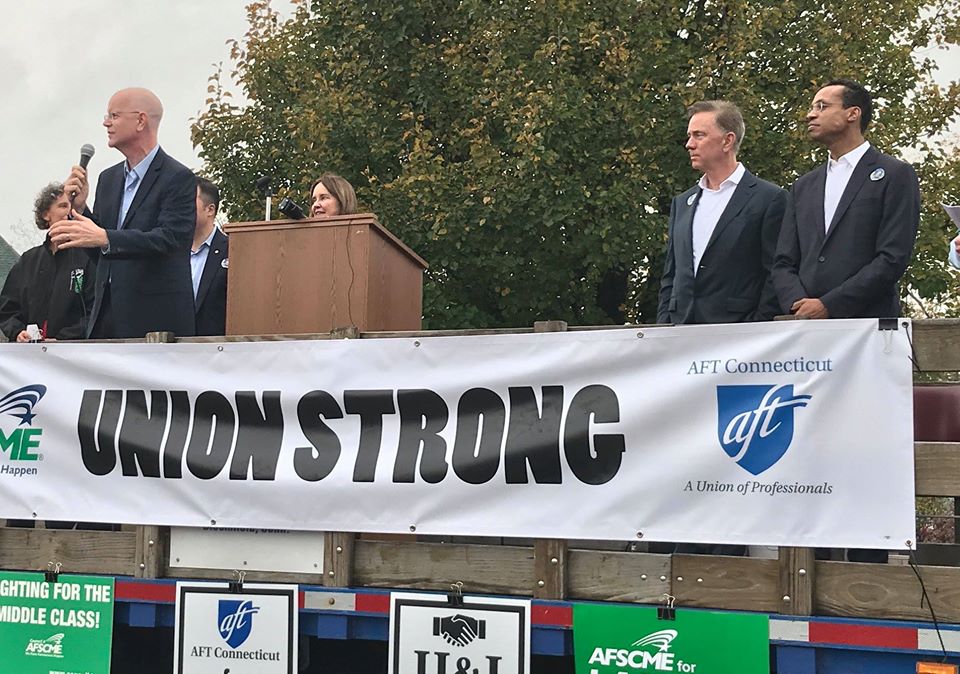Minnesota Gov. Tim Walz issued an executive order on March 17 temporarily suspending collective bargaining restrictions on the state workforce, raising some concern among government unions.
According to Walz’s executive order, all provisions in collective bargaining agreements related to work schedules, locations, vacation approval, seniority requirements and work reassignments in order to “ensure state agencies are able to timely and effectively mobilize their workforce to address the peacetime emergency.”
Washington D.C. Mayor Muriel Bowser also issued a similar emergency declaration that administrators can “deploy personnel in a manner that may contravene provisions of existing collective bargaining agreements.”

According to report from the American Federation of Teachers, “It is not clear what authority Minnesota and D.C. are relying on in taking action to suspend contract provisions, but it is easy to imagine an unfriendly governor exploiting a declared emergency to undermine a state’s collective bargaining law entirely.”
“In states where work rules and conditions of employment are enacted through state legislative or regulatory action, including states where legislatures are required to approve collective bargaining agreements, we can expect governors to assert power to make changes to work rules and collective bargaining agreements,” AFT wrote.
According to the AFT report, the State Employee Bargaining Agent Coalition “has submitted a set of demands regarding essential employees in response to the administration’s actions under the state emergency.”
SEBAC has submitted a set of demands regarding essential employees in response to the administration’s actions under the state of emergency.
From AFT report “Emergency Declarations, Executive Orders and the Implications for Collective Bargaining.”
The SEBAC document says they have asked for “a daily point of contact between a designated union leader for each bargaining unit, and a designated management representative so there will be continuous sharing of information.”
The document lists “three major flaws” in the Lamont administration’s decision on which workers still need to report to work at state locations, including those workers who are “at particular risk due to age or medical condition.”
“We think this is very wrong, and they should be told they may remain home and telework,” SEBAC document says.
Additionally, it says employees who have had contact with quarantined individuals are being told to report to work and that there is no clear indication from the administration as to whether those who have been exposed to the virus should self-quarantine.
The document also says the union coalition is seeking legislative and administrative action to expand sick pay and leave requirements of all Connecticut workers, extend the length of unemployment benefits, “adopt Airborne Pathogen workplace standards under Connecticut Occupational Health and Safety Laws” for all public employers and provide guidance for private employers.
Union leaders are also signing on to a document from the Connecticut Workers Crisis Response that calls for numerous provisions, including regular testing and childcare for essential workers, elimination of medical billing and rent payments, emergency taxes on the wealthy at both the state and federal level and “no suspension of collective bargaining agreements.”
A number of Connecticut labor leaders have signed on to the document, including the presidents of Unite Here at Eastern Connecticut State University and UConn, as well as leaders of UConn’s graduate student and post-doctoral union.
“With this document we are seeking to work in collaboration with the Connecticut labor and social justice movements, the unemployed, underemployed, and non-union to fight for a future where workers are not economically and medically devastated,” CWCR wrote.
It is not clear what authority Minnesota and D.C. are relying on in taking action to suspend contract provisions, but it is easy to imagine an unfriendly governor exploiting a declared emergency to undermine a state’s collective bargaining law entirely.
From AFT report “Emergency Declarations, Executive Orders and the Implications for Collective Bargaining.”
Connecticut’s collective bargaining contracts are negotiated by the governor’s office and are approved legislatively. The majority of Connecticut’s current labor contracts were approved under the 2017 SEBAC agreement negotiated by Gov. Dannel Malloy and passed, barely, by the legislature.
With the onset of the COVID-19 pandemic, Gov. Ned Lamont has issued numerous executive orders effectively closing down a number of businesses, extending tax deadlines, suspending regulatory requirements and ordering that non-essential state employees work from home, if possible.
Thus far, Lamont has not issued anything related to collective bargaining and appears to be working collaboratively with the state’s labor union leaders.
Lamont does have the ability to issue an emergency executive order suspending collective bargaining provisions. Such an order would last only six months or until the public health crisis is over.
**Meghan Portfolio contributed to this article**


Ron
April 11, 2020 @ 9:25 am
“order, all”
Missing word.